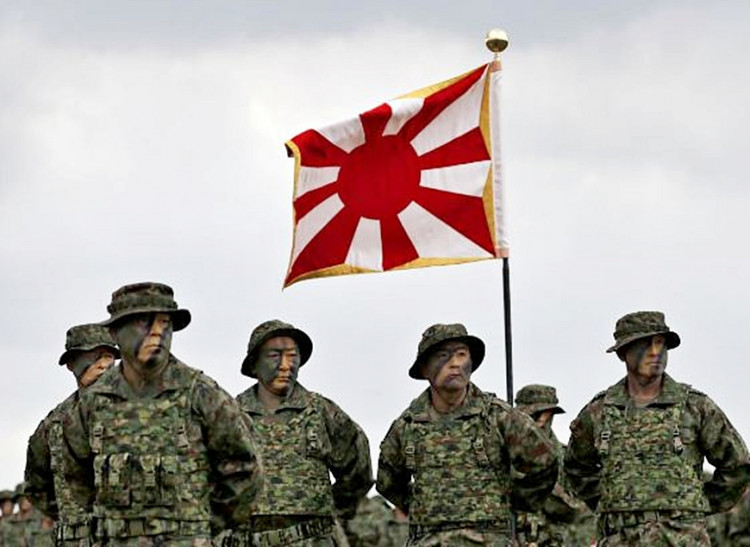Japanese Prime Minister Shinzo Abe has again promised to amend Japan's pacifist 1947 Constitution to allow the Japan Self-Defense Force (JSDF), the most powerful in Asia outside of China, more freedom of action overseas.
Abe, who last month was re-elected president of the ruling Liberal Democratic Party (LDP), told some 4,000 JSDF troops at a review that his push to revise the Constitution also intends to instill a sense of pride in Japan's soldiers. The existence of the JSDF is hazy, some say illegal, in the Constitution. It is this ambiguity Abe wants to clarify.
Abe has never been shy about his desire to rewrite Japan's totally pacifist 1947 Constitution, which was imposed by the victorious United States. The American-dictated Constitution forces Japan to "forever renounce war" and dictates that Japanese armed forces will "never be maintained". American forces occupied Japan from 1945 to 1951.
Only recently, Abe said the revision of the Constitution "is a long-held policy goal" of the LDP. We can't only keep discussing it, he pointed out.
Abe said the changes he wants will give Constitutional legality to the JSDF, which shouldn't technically exist under a strict interpretation of the Constitution. Abe wants to add a clause to Article 9 of the Constitution, which prohibits Japan from using military force to resolve international disputes. He wants to explicitly permit the existence of Japan's military.
Abe said that a revision of the Constitution is also needed to give his troops a sense of pride.
Abe told the assembled soldiers they "have gained public trust with your own hands." He said now is the time for his government to fulfill its responsibility as politicians to create an environment where the soldiers of the JSDF can accomplish their duties with a sense of pride.
Abe is determined to pursue his long-sought charter amendment since his re-election as LDP president guarantees him three more years as Japan's prime minister. Abe's renewed hold on power will place him on track to realize his greatest political aim -- updating Japan's Constitution to allow Japan to wage war as an instrument of national policy. Abe, 63, became prime minister in 2012.
Many Japanese conservatives see Japan's U.S.-drafted constitution as a humiliation imposed after their defeat in World War II.
Abe's LDP has continuously expanded the JSDF's international role by resorting to more lenient interpretations of Article 9. In 2015, Abe's government passed a defense law allowing Japanese troops to defend the U.S. and its other allies in case of foreign attack. This fundamental change from its self-defense only policy means the JSDF can do battle outside Japan's shores.
Most Japanese also see no reason to amend the Constitution despite Abe's repeated pleadings. Most voters simply don't see a revision as a top priority for the government and the Diet. Any change to the Constitution will need to be ratified by a referendum, which carries immense political risks for Abe if voters defeat the changes.






